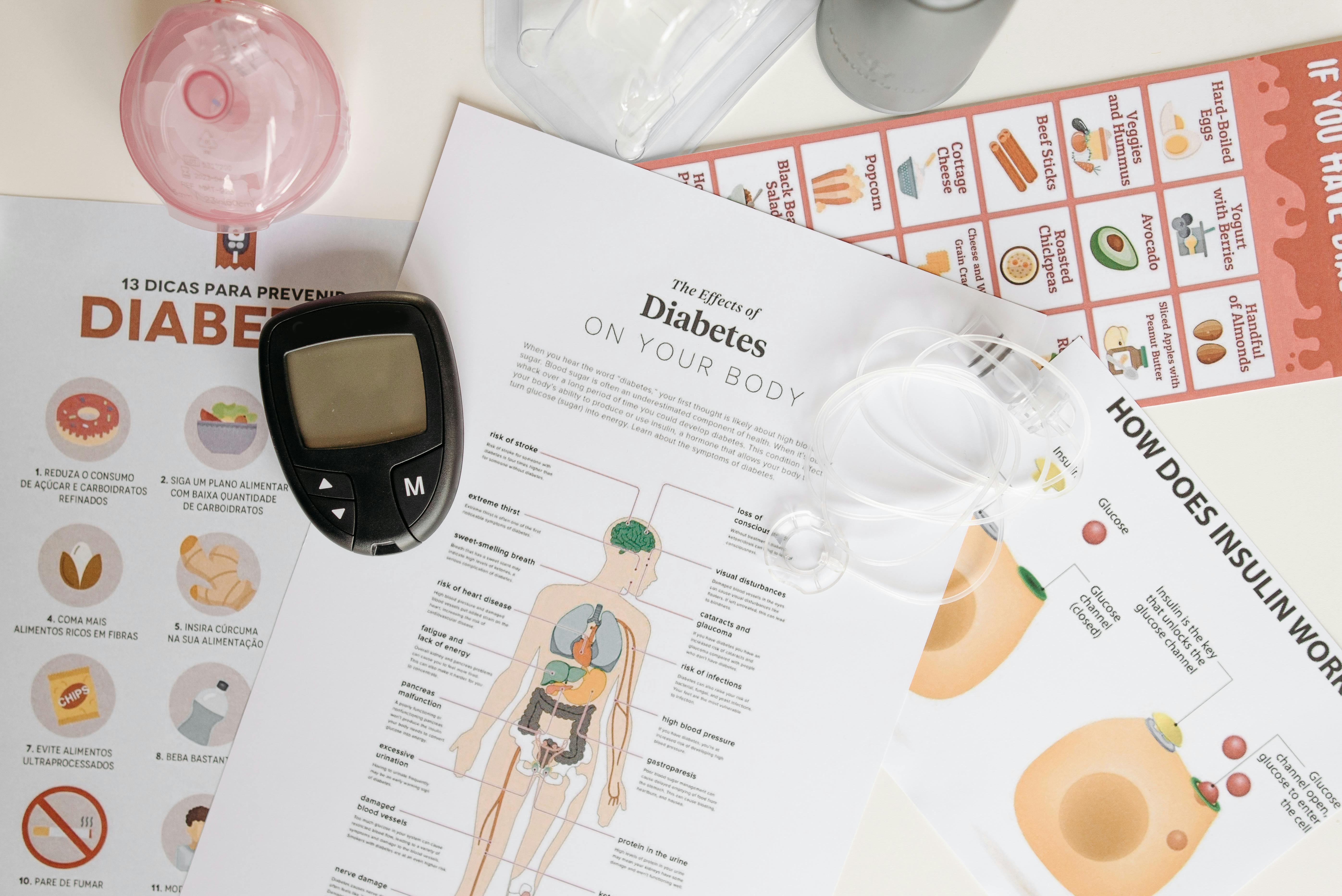
28 Signs You Might Have Insulin Resistance
The Hidden Epidemic: 28 Signs You Might Have Insulin Resistance
Insulin resistance might just be the most common — and most ignored — health problem on the planet. Estimates suggest that 60–75% of adults have it in some form, often without even realizing it. It’s the silent engine behind weight gain, fatigue, inflammation, and many chronic diseases — including diabetes, heart disease, and even hormonal imbalances.
So, how do you know if your body is insulin resistant? Let’s walk through the telltale signs — not in sterile textbook fashion, but how they actually show up in real life.
The Everyday Signs of Insulin Resistance
1. Waking up to pee (again and again).
If you’re constantly up at night running to the bathroom, it’s not just bad luck — it’s your kidneys responding to excess sugar in the blood. That broken sleep? Completely fixable once insulin sensitivity returns.
2. Always hungry — even after meals.
You eat, you’re full, yet you’re not satisfied. That’s because your cells are literally starving for nutrients. They can’t absorb what’s in your bloodstream due to insulin resistance.
3. Craving carbs like your life depends on it.
Bread, cereal, biscuits, muffins, pancakes — sound familiar? Your body is crying out for quick energy because it can’t efficiently access stored fat for fuel.
4. That afternoon crash.
If you’re fighting to stay awake after lunch, that’s insulin resistance showing its hand. The spike and crash in blood sugar leads to fatigue and brain fog.
5. Fat around your midsection.
This one’s the giveaway. Whether you can see it or not (hello, skinny-fat), belly fat almost always points to insulin resistance.
6. Low exercise stamina.
You tire easily, can’t push through workouts, or feel wiped out afterward. Your muscles are starved for energy because they’re insulin resistant too.
7. High cholesterol and triglycerides.
You’ll often see high LDL, low HDL, and high triglycerides together — the metabolic “triad” of insulin resistance.
8. Elevated blood pressure.
Stiff, inflamed arteries are another sign your body is under insulin stress.
9. Fatty liver.
The liver becomes overloaded trying to store fat created by excess sugar.
10. PCOS and hormonal issues.
High insulin triggers high androgens (male hormones), leading to acne, cysts, irregular periods, and even low breast milk production postpartum.
11. Dark, velvety skin folds.
Those patches on your neck, armpits, or groin (called acanthosis nigricans) are a classic insulin resistance marker.
12. Skin tags and cysts.
Your body showing insulin stress right on the surface.
13. Inflammation and pain.
Arthritis, bursitis, tendonitis — any chronic “-itis” thrives in an insulin-resistant environment.
14. Sluggish metabolism and weight plateaus.
If you’ve hit a point where no matter what you do, the scale won’t budge — that’s high insulin locking in fat storage.
15. Sleep apnea.
Common in insulin-resistant individuals, even without obesity.
16. Brain fog and poor memory.
Glucose dysregulation affects brain energy and cognition. Insulin resistance is a known contributor to dementia and Alzheimer’s.
17. Mood swings, irritability, and anxiety.
That “hangry” feeling? It’s not your personality — it’s unstable blood sugar.
18. Loss of muscle tone and joint tissue.
Without proper nutrient absorption, your body struggles to maintain protein structures like collagen and muscle.
19. Nutrient deficiencies.
Insulin resistance limits absorption of potassium, magnesium, vitamin D, and vitamin C — the very nutrients that stabilize metabolism.
20. Overactive stress response.
You live in fight-or-flight mode — can’t relax, dizzy when standing, and feel wired but tired.
21. Acne and oily skin.
Often driven by elevated insulin and androgens.
22. Low testosterone (men) and hormonal imbalances (women).
High insulin suppresses healthy hormone production across the board.
23. Prediabetes and diabetes.
These are simply advanced stages of insulin resistance — not separate diseases.
24. Slow recovery and low endurance.
The inability to tap into fat for energy leaves you drained faster than you should be.
25. Elevated blood glucose — even “normal” readings.
You don’t need sky-high glucose to be insulin resistant. Even readings in the 90–100 range can be a red flag. Optimal fasting glucose is 70–80 mg/dL.
26. Cysts, fatty deposits, and internal fat buildup.
The so-called “skinny-fat” body type is just as at risk as someone visibly overweight.
27. Decreased focus and motivation.
You can’t think clearly, you procrastinate, you forget what you were saying mid-sentence — all linked to poor glucose regulation in the brain.
28. Chronic fatigue and burnout.
Every system is stressed when insulin can’t do its job properly.
The Root Cause: Too Much Insulin for Too Long
Insulin resistance develops when your body is exposed to high insulin repeatedly — from sugar, refined carbs, snacking, and processed food oils. Over time, your cells stop responding.
The solution isn’t another pill or a low-fat diet. It’s about restoring metabolic balance by doing what the human body evolved to do:
Eat real food — healthy fats, clean protein, and vegetables.
Stop grazing all day — give your body time to burn stored energy.
Eliminate sugar and refined carbs completely.
If several of these signs sound familiar, you’re not alone — and you’re not broken. Insulin resistance is reversible, and the fix is rooted in traditional, whole-food nutrition and lifestyle shifts that support your natural metabolism.
At BBHC, we help people reclaim their health every day by restoring what modern diets have destroyed — metabolic stability.
Because when you fix insulin resistance, you don’t just lose weight.
You regain energy, focus, hormones, and vitality.
Your body knows what to do — you just have to get out of its way.
BBHC | Better Body Health Coaching
Reclaim health the way nature designed.

